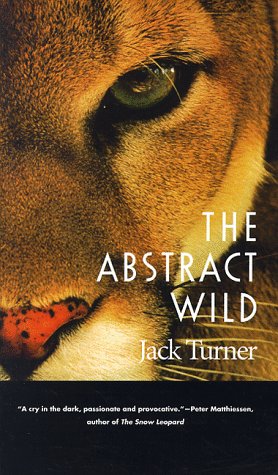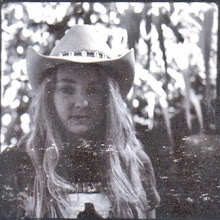 "Effective protests are grounded in a refusal to accept what is normal. We accept a diminished world as normal; we accept a diminished way of life as normal; we accept diminished human beings as normal. What was once considered pathological becomes statistically common and eventually "normal" - a move that often veils denial. Decayed teeth are statistically common, just like smog and environmentally caused cancers. That a statistically common decayed tooth is also an abnormal tooth, a pathological tooth, a diminished tooth, a painful, horrible tooth, is a fact we deny. Until it is our tooth. At present most of us do not experience the loss of the wild like we experience a toothache. That is the problem. The "normal" wilderness - wilderness most people know - is a charade of areas, zones, and management plans that is driving the real wild into oblivion. We deny this, accepting the semblance instead of demanding the real. This, too, is normal; modern culture is increasingly a culture of semblance and simulacra...
"Effective protests are grounded in a refusal to accept what is normal. We accept a diminished world as normal; we accept a diminished way of life as normal; we accept diminished human beings as normal. What was once considered pathological becomes statistically common and eventually "normal" - a move that often veils denial. Decayed teeth are statistically common, just like smog and environmentally caused cancers. That a statistically common decayed tooth is also an abnormal tooth, a pathological tooth, a diminished tooth, a painful, horrible tooth, is a fact we deny. Until it is our tooth. At present most of us do not experience the loss of the wild like we experience a toothache. That is the problem. The "normal" wilderness - wilderness most people know - is a charade of areas, zones, and management plans that is driving the real wild into oblivion. We deny this, accepting the semblance instead of demanding the real. This, too, is normal; modern culture is increasingly a culture of semblance and simulacra... ...The reduction of social criticism to private defect is incessant in our culture; it cripples our outrage and numbs our moral imagination. Convinced that it is really our problem, we are no longer astonished by evil and living nightmares no longer awaken us. We are put down, so we shut up, abandoning the prospect of autonomy, self-respect, and integrity. Signing more petitions, giving money, or joining another environmental organization helps some, but these things are too abstract to help us and our problem. These means are too far removed from the end, the intention unachieved. Indeed, our apathy and cowardice stem, in part, from this: these abstractions never work, they never achieve a sense of power and fulfillment. They correct neither the cause nor the effect. We end up feeling helpless, and since it is human nature to want to avoid feeling helpless, we become dissociated, cynical, and depressed.
Better to live in the presence of the wild - feel it, smell it, see it - and do something real that succeeds, like Gray Nabhan's preservation of wild seeds or Doug Peacock's intimacy with grizzlies. We know that in the end moral efficacy will manifest knowledge and love: our intimacies. We only value what we know and love, and we no longer know or love the wild. So instead we accept substitutes, imitations, semblances, and fakes - a diminished wild. We accept abstract information in place of personal experience and communication. This removes us from the true wild and severs our recognition of its value. Most people don't miss it and won't miss it in the future. Most people literally do not know what we are talking about.
To reverse this situation we must become so intimate with wild animals, with plants and places, that we answer to their destruction from the gut..."
an excerpt from The Abstract Wild: A Rant
by Jack Turner
